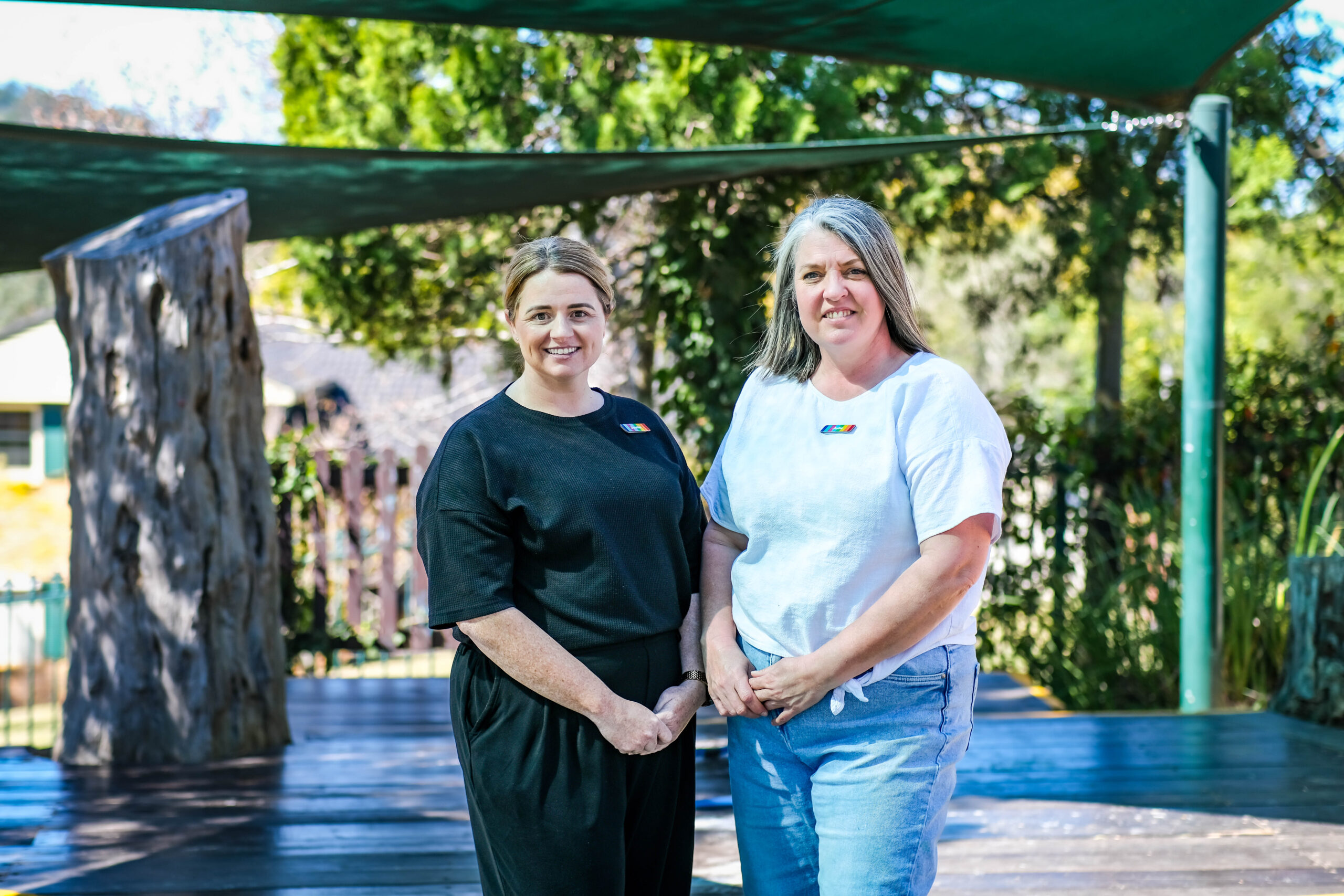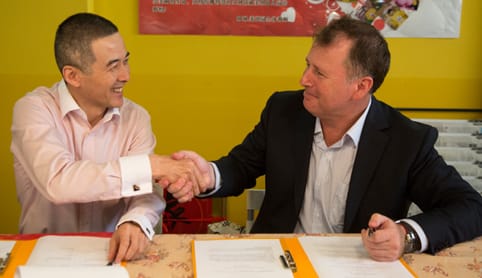When it comes to early learning, Picton Community Preschool, a part of Big Fat Smile, is a shining example of how empowering educators to apply research and philosophy in daily practices can lead to remarkable outcomes. Together, the team has applied the latest research and thinking to implement a daily rhythm grounded in the needs of the children.
This charming 39-place preschool nested on a hill, is well-known for its inviting outdoor environment, complete with natural elements like a creek running down the middle of the yard, swings, gardens, lizards and chickens. But what makes this space truly special is the team approach to enhancing children’s learning.
To explore the unique approach of the Picton Community Preschool team, we sat down with Jamie, Centre Director, and Julie, Early Childhood Educator. Their passion for their work is contagious, and their insights are nothing short of inspiring.
Jamie, who not only has nearly eight years of service at the preschool, but also grew up attending as a child, knows the Picton community inside and out. It’s clear that she and the rest of the team have a deep passion for the children and families who walk through the doors every day. And at the heart of their approach is the Big Fat Smile value of ‘Connection’. Everything they do is in partnership with families, children, and the wider Big Fat Smile team.
One of the team’s big breakthroughs came when they realised that the daily routine at the preschool was interrupting the flow of children’s play and learning. So, they came together to find a better way forward. They embraced the idea of a daily rhythm, one that aligned with the children’s needs and fostered uninterrupted, meaningful play.
Building on this insight, Julie, a long-standing member of the team, worked closely with the Practice team at Big Fat Smile to dive deep into key early childhood concepts like the Phoenix Cups model, the Early Childhood Environment Rating Scale (ECERS), and the Sustained Shared Thinking and Emotional Wellbeing Scale (STTEWS). Their discoveries were enlightening. The Phoenix Cups model helped them identify individual children’s emotional needs, allowing the team to tailor their approach to better support each child’s growth.
Julie explains,
“Once we identified the emotional needs of the children, we found we were able to really support children, keep them engaged, and improve their learning outcomes.”
The ECERS scale highlighted the importance of smaller group learning opportunities, and the STTEWS scale showed how the educators could better support communication, language development, and critical thinking. With these insights, the team created a daily rhythm that’s far more than just a routine – it’s a flexible, child-centric flow that includes large blocks of playtime, with options for both active and quiet play.
Julie elaborates:
‘We also had many conversations between core educators to interpret this learning. This then developed into critical reflections on how and why we could transform our daily routine to a daily rhythm.’
The outcome? Jamie shares:
‘During small group times, educators and children have been building strong connections. Children are more engaged, and the environment feels calmer for big blocks of the day. We have less transitions and more opportunities to extend on children’s play and learning.’
At Big Fat Smile, the journey of learning and growth never ends – it’s a shared adventure we embark on together, ensuring that every child receives the best possible early education and care.
Want to be part of this exciting journey? If you’re looking for a place to grow, get better, and solve problems – together, look no further! We’re looking for a passionate early childhood teacher to join this team as the Centre Director, while Jamie takes some time to look after her new baby and young family.
Check out our current job opening here, or learn more about the benefits of working at Big Fat Smile here.



